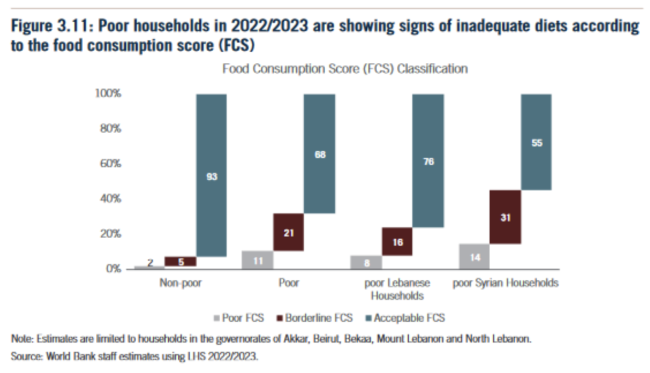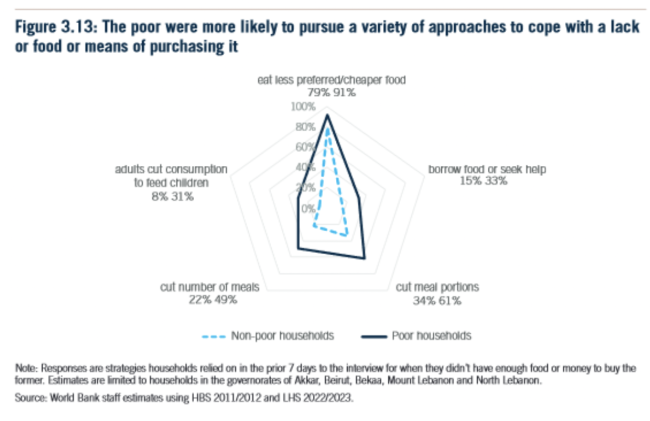Highlights:
p. 63 and following focuses more specifically on the impact of the economic crisis on food insecurity.
Figure 3.11 provides evidence that households are coping not only by cutting back on food expenditures but by altering their diets.

Disaggregated food consumption data from 2011/2012 and 2022/2023 also shows that the pattern of food consumption has changed among Lebanese households, likely in response to unprecedented levels of food inflation (figure 3.12).

Compared to non-poor households, the poor were twice as likely to reduce meal portions, cut the number of meals, or borrow food or rely on help from relatives or friends, and nearly four times as likely to have an adult member limit their consumption in order to feed the household’s children.

The report also give disaggregated information for the Syrian families who have fled in Lebanon.
| Year of publication | |
| Geographic coverage | Lebanon |
| Originally published | 27 May 2024 |
| Related organisation(s) | World Bank |
| Knowledge service | Metadata | Global Food and Nutrition Security | Food security and food crises | Countries affected by conflictCost of the dietAccess to foodFood price crisis |
| Digital Europa Thesaurus (DET) | economic conditionsinflationpovertyeconomic analysisMonitoring |
